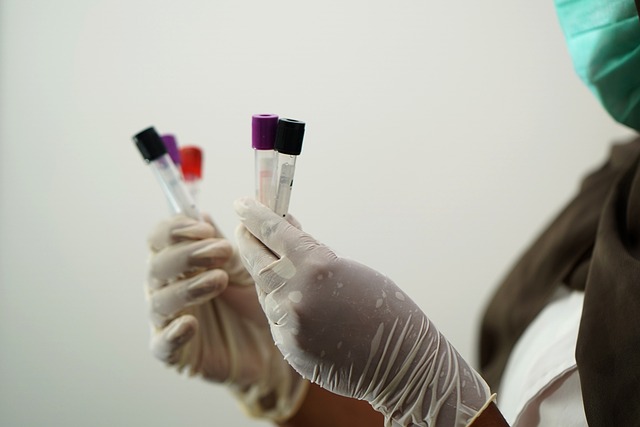In the UK, a General Health Blood Test plays a vital role in diagnosing male reproductive issues by measuring key hormones like testosterone, oestrogen, progesterone, and luteinising hormone. Imbalances or deficiencies can cause symptoms ranging from decreased libido to infertility, prompting healthcare professionals to make informed treatment decisions. These tests can identify conditions such as hypogonadism or thyroid disorders and even potential cancers affecting the reproductive system. Understanding hormone levels through this non-invasive screening method guides further diagnostics and specialist care when needed, helping men navigate reproductive challenges and optimise their fertility and overall health.
In the UK, understanding male hormone levels is key to diagnosing reproductive issues. This comprehensive guide explores how a simple General Health Blood Test can reveal insights into your hormonal balance, offering vital clues about potential problems.
We demystify the process, from identifying essential hormones to interpreting test results, guiding you through the next steps towards accurate diagnosis and effective treatment options.
- Understanding Male Hormone Levels: The Basics
- How General Health Blood Tests Can Help Diagnose Reproductive Issues in Men
- Interpretation and Next Steps After a Male Hormone Level Analysis
Understanding Male Hormone Levels: The Basics
Male hormone levels play a pivotal role in overall reproductive health and function. Understanding these levels is essential for diagnosing and managing various reproductive issues. In the UK, a general health blood test often includes measurements of key hormones such as testosterone, oestrogen (in men, albeit in smaller amounts), progesterone, and luteinising hormone (LH). These hormones work together to regulate the male reproductive system, including the production of sperm and maintenance of sexual function.
An imbalance or deficiency in any of these hormones can lead to a range of symptoms, from decreased libido and erectile dysfunction to infertility and changes in body composition. By analysing these hormone levels, healthcare professionals can gain valuable insights into a man’s reproductive health, enabling them to make informed decisions about treatment and management strategies. This is particularly important for individuals seeking answers regarding their fertility or experiencing unexpected changes in their sexual health.
How General Health Blood Tests Can Help Diagnose Reproductive Issues in Men
In the UK, General Health Blood Tests play a pivotal role in diagnosing reproductive issues in men. These comprehensive assessments measure various hormone levels, including testosterone, which is crucial for male fertility and reproductive health. By analysing blood samples, healthcare professionals can identify imbalances or deficiencies that may indicate underlying problems such as hypogonadism, thyroid disorders, or even certain types of cancer affecting the reproductive system.
The General Health Blood Test UK offers a non-invasive method to screen for potential reproductive challenges. Elevated or decreased hormone levels can provide valuable clues about a man’s fertility status and overall health. This initial evaluation often serves as a starting point for further diagnostics, guiding specialists in tailoring treatments or referring patients for more specialised care.
Interpretation and Next Steps After a Male Hormone Level Analysis
After undergoing a male hormone level analysis, interpreting the results is crucial for understanding potential reproductive issues. This general health blood test in the UK assesses various hormones, including testosterone, which plays a significant role in fertility and sexual health. Elevated or lowered levels can indicate underlying problems such as hormonal imbalances, hypogonadism, or even certain medical conditions.
The next steps typically involve consulting a healthcare professional who will review the results in context with your medical history and symptoms. They may recommend further testing, lifestyle changes, or specific treatments to address any identified issues. This personalised approach ensures that any potential reproductive challenges are effectively managed, promoting optimal general health and fertility.
Male hormone level analysis, often combined with general health blood tests in the UK, offers valuable insights into reproductive issues. By understanding hormone basics and interpreting test results, men can take informed steps towards optimal health. These tests are crucial tools for early diagnosis and effective treatment planning, ensuring better fertility outcomes and overall well-being.
